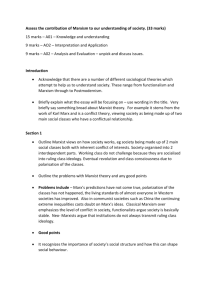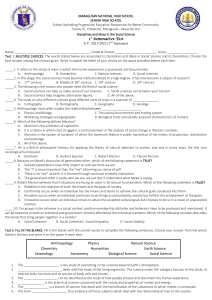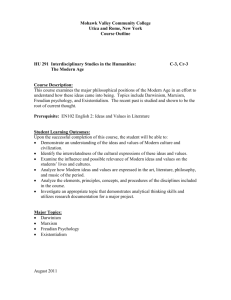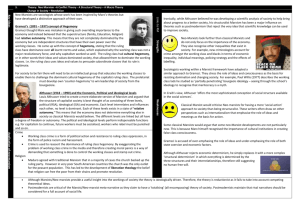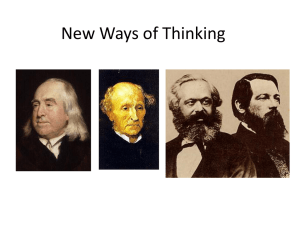Marxism: Some General Points of Criticism... 1. The “over
advertisement
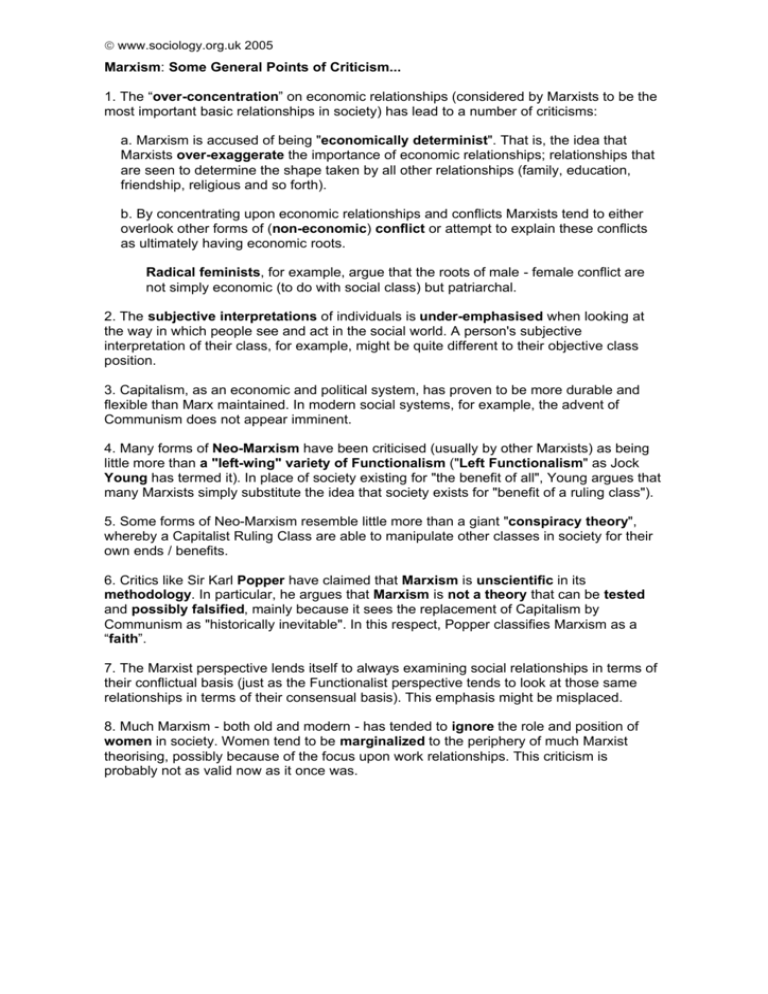
www.sociology.org.uk 2005 Marxism: Some General Points of Criticism... 1. The “over-concentration” on economic relationships (considered by Marxists to be the most important basic relationships in society) has lead to a number of criticisms: a. Marxism is accused of being "economically determinist". That is, the idea that Marxists over-exaggerate the importance of economic relationships; relationships that are seen to determine the shape taken by all other relationships (family, education, friendship, religious and so forth). b. By concentrating upon economic relationships and conflicts Marxists tend to either overlook other forms of (non-economic) conflict or attempt to explain these conflicts as ultimately having economic roots. Radical feminists, for example, argue that the roots of male - female conflict are not simply economic (to do with social class) but patriarchal. 2. The subjective interpretations of individuals is under-emphasised when looking at the way in which people see and act in the social world. A person's subjective interpretation of their class, for example, might be quite different to their objective class position. 3. Capitalism, as an economic and political system, has proven to be more durable and flexible than Marx maintained. In modern social systems, for example, the advent of Communism does not appear imminent. 4. Many forms of Neo-Marxism have been criticised (usually by other Marxists) as being little more than a "left-wing" variety of Functionalism ("Left Functionalism" as Jock Young has termed it). In place of society existing for "the benefit of all", Young argues that many Marxists simply substitute the idea that society exists for "benefit of a ruling class"). 5. Some forms of Neo-Marxism resemble little more than a giant "conspiracy theory", whereby a Capitalist Ruling Class are able to manipulate other classes in society for their own ends / benefits. 6. Critics like Sir Karl Popper have claimed that Marxism is unscientific in its methodology. In particular, he argues that Marxism is not a theory that can be tested and possibly falsified, mainly because it sees the replacement of Capitalism by Communism as "historically inevitable". In this respect, Popper classifies Marxism as a “faith”. 7. The Marxist perspective lends itself to always examining social relationships in terms of their conflictual basis (just as the Functionalist perspective tends to look at those same relationships in terms of their consensual basis). This emphasis might be misplaced. 8. Much Marxism - both old and modern - has tended to ignore the role and position of women in society. Women tend to be marginalized to the periphery of much Marxist theorising, possibly because of the focus upon work relationships. This criticism is probably not as valid now as it once was.
